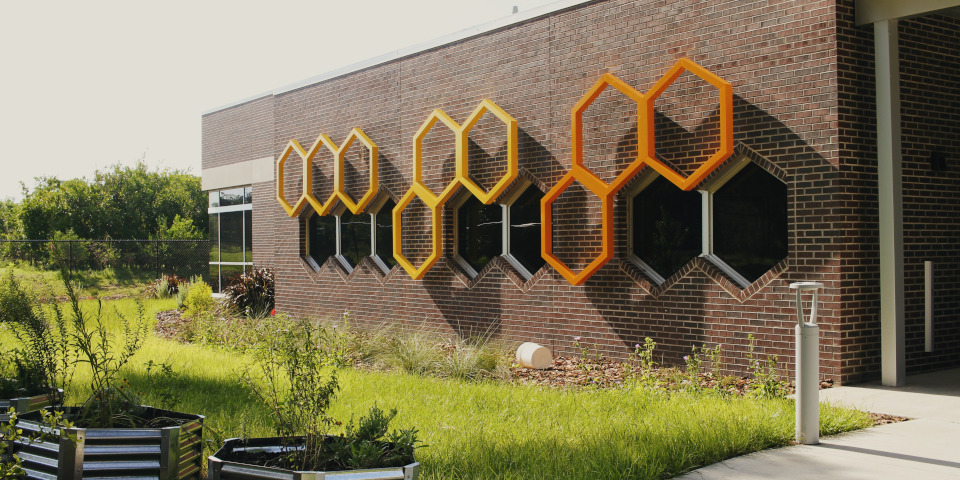Graduate Research Associate (PhD) in honey bee toxicology
Position Announcement: We are seeking an exceptional candidate to join the University of Florida’s Honey Bee Research and Extension Laboratory (HBREL) as a PhD student investigating honey bee toxicology. Headquartered in the Entomology and Nematology Department, the PhD student will join a dynamic team of bee-enthusiasts dedicated to honey bee husbandry and ecology.
Location: Honey Bee Research and Extension Laboratory, Entomology and Nematology Department, University of Florida, 1881 Natural Area Dr., Gainesville, FL, 32611
Contact and Supervisor: Dr. Jamie Ellis, Gahan Endowed Professor of Entomology (jdellis@ufl.edu)
Start date: 1 January 2025
Salary: $33,000 stipend per year + graduate tuition and health benefits (tuition and health benefits valued at >$18,000 per year)
Project Description: Honey bees are impacted by a variety of stressors, including pests, parasites, poor nutrition, and pesticides. Of these stressors, pesticides play the most ambiguous role in honey bee health. There is clear evidence that honey bee exposure to single pesticides can result in toxic effects. However, honey bees are rarely exposed to single compounds in nature. In fact, residue analyses of hive matrices have demonstrated that honey bee nests often contain residues from two or more pesticides. Nevertheless, most research on the impacts of pesticides on honey bees focuses on honey bee exposure to single compounds. The successful candidate will study how immature honey bee exposure to multiple pesticides simultaneously impacts bee health and development. The candidate will also develop other methodologies to investigate multiple residue exposure impacts on bees. The candidate will be allowed to develop additional research questions related to honey bee toxicology. Ultimately, this research will help us develop better pesticide risk mitigation strategies for honey bees.
Qualifications:
Basic eligibility requirements:
B.S. in biology, entomology, chemistry, toxicology, or other related discipline
Demonstrated proficiency of general laboratory practices
Ability to work independently and with others
Excellent critical thinking skills
The candidate must self-motivated and have a passion for research scholarship.
The candidate cannot be allergic to honey bee stings.
Preferred eligibility requirements:
M.S. in biology, entomology, chemistry, toxicology, or other related discipline
Experience working with honey bees or as a beekeeper
Strong statistical skills
Significant laboratory experience
Experience publishing peer-reviewed articles
Grant writing experience
Why work with us: The University of Florida HBREL is a leader in honey bee research, extension, and education. The mission of the HBREL is to advance understanding of honey bees in Florida, the U.S., and globally, with the goal of improving the health and productivity of honey bee colonies everywhere. Our team addresses this goal by conducting basic and applied research with managed and wild honey bees, communicating our findings to assorted clientele groups through diverse extension programming, and training future generations of bee educators, researchers, conservationists, and more. The University of Florida Entomology and Nematology Department is the #1 ranked entomology department in the world. Students in our laboratory are given the opportunity to publish refereed manuscripts, write grants, travel to professional meetings domestically and internationally, mentor other students, and engage in the HBREL’s many extension initiatives. Students graduating from our program are equipped to excel in a dynamic discipline and positioned for professional and personal fulfillment.
Work schedule: Graduate research assistantships have a 0.5 full time equivalent (FTE) requirement. This means that the student will work up to 20 hours/week on tasks assigned by Dr. Jamie Ellis (with most assigned work being relevant to the dissertation topic or professional development activities) and additional hours at the student’s discretion (usually 20+) to complete degree requirements (courses, dissertation research, etc.). This can include evening and weekend work.
Applications: A review of applications will begin on 26 August 2024 and will continue until a suitable candidate is identified. To be considered for this position, applicants must submit the following documents to Chris Oster at honeybee@ifas.ufl.edu.
1) Statement of interest in the topic and in working in the Ellis laboratory
2) Curriculum vitae
3) Undergraduate and graduate transcripts
4) Contact information for three individuals willing to write letters of recommendation on the applicant’s behalf
Please write “Graduate PhD Application – honey bee toxicology” in the email subject heading. Email submission of complete application is required for consideration. Incomplete applications will not be considered.
Please email Dr. Jamie Ellis (jdellis@ufl.edu) with any questions regarding the position.
The University of Florida is An Equal Employment Opportunity Institution. If an accommodation due to a disability is needed to apply for this position, please call (352) 392-2477. Hiring is contingent upon eligibility to work in the US. Searches are conducted in accordance with Florida’s Sunshine Law.










